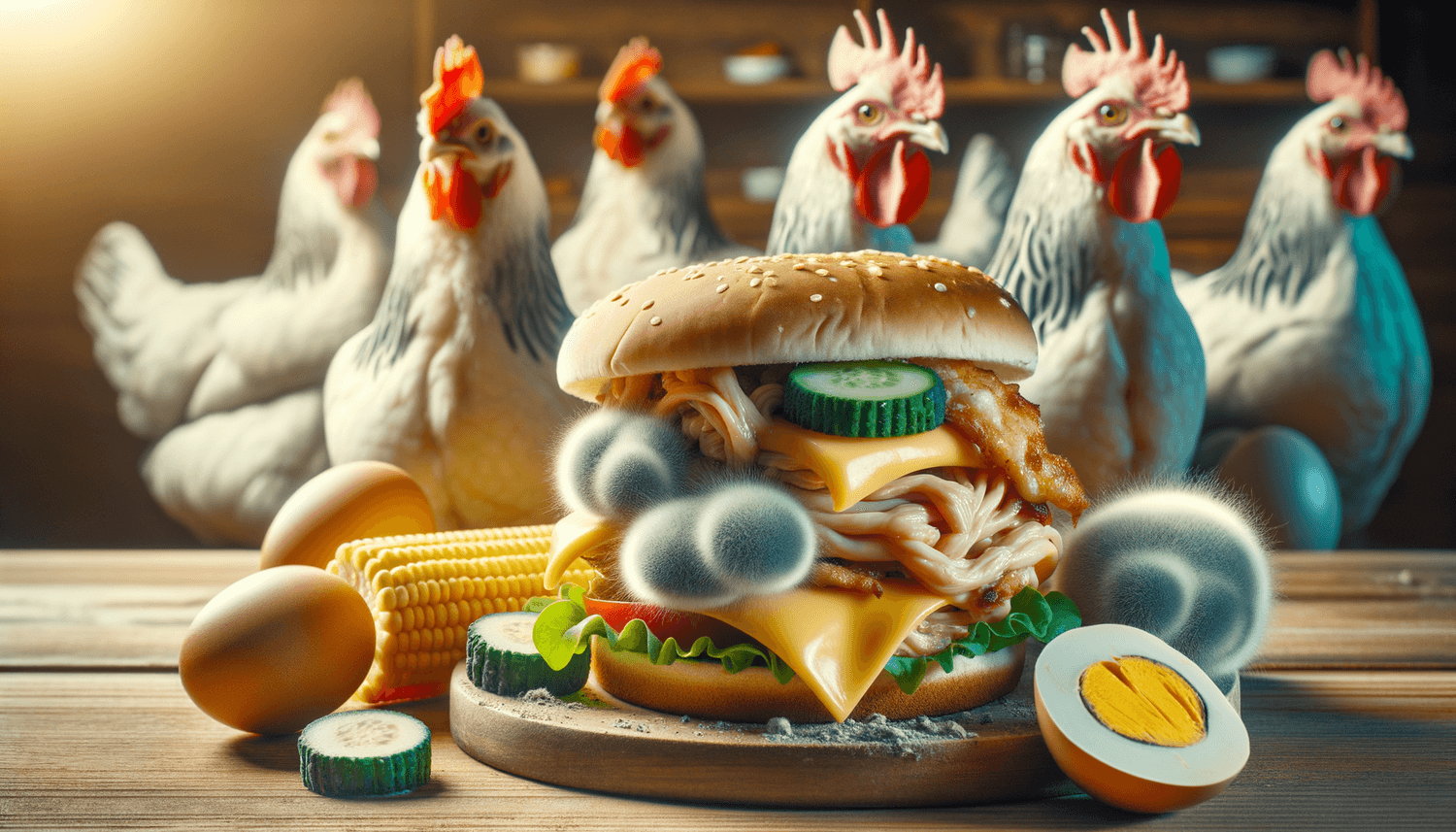No, chickens cannot eat mold. Moldy foods can contain toxins and pathogens such as Mycotoxins and Aspergillus, which can be harmful or even fatal to chickens. Mold growth also indicates that the food is decomposing and not fresh, further compromising its nutritional value and safety for chicken consumption.
Quick Summary
- Chickens cannot eat mold.
- Mold contains harmful toxins and pathogens that can cause illness or death in chickens.
- The risks include exposure to Mycotoxins and fungal infections.
- There are no recommended feeding guidelines for mold as it should be completely avoided.
Overview of Mold
Mold is a type of fungus that grows in the form of multicellular filaments called hyphae. It can appear on food and organic matter in various colors, including green, white, black, and grey. Molds thrive in moist environments and can decompose organic materials, decreasing their nutritional value and producing potentially toxic substances.
Benefits and Risks of Mold for Chickens
There are no benefits of feeding mold to chickens. The risks, however, are significant. Consumption of mold can introduce Mycotoxins such as aflatoxin and ochratoxin, which can cause respiratory issues, liver damage, and immune suppression in chickens. The risk of aspergillosis, a respiratory disease caused by Aspergillus species, also increases with mold ingestion.
Feeding Guidelines
As mold is not safe for chickens, there are no feeding guidelines. Chicken feed and treats must always be fresh and free of mold to ensure the health and safety of the flock. Proper storage of chicken feed in a cool, dry place can prevent mold growth and protect the chickens from exposure to harmful substances.
Alternatives
Instead of moldy food, fresh grains, vegetables, and specially formulated chicken feed are healthy alternatives that can provide the necessary nutrients for chickens without the associated risks of mold.
Expert Opinions
Poultry nutritionists and veterinarians unanimously agree that moldy foods should not be fed to chickens. Authoritative sources such as extension services and avian health publications regularly advise against the inclusion of moldy feed or treats in a chicken’s diet due to the risks of toxicosis and infection.
Frequently Asked Questions
After reading ‘Can Chickens Eat Mold?’, readers might have additional questions. The following are some common inquiries:
What should I do if my chickens eat moldy food?
If your chickens accidentally consume moldy food, monitor them closely for signs of illness and consult a veterinarian for advice. Removing moldy feed immediately and replacing it with fresh food is also essential.
How can I prevent mold in chicken feed?
To prevent mold, store chicken feed in a cool, dry place and keep it sealed in airtight containers. Regularly check for mold, especially in humid conditions, and discard any moldy feed immediately.
Are some chickens more resistant to mold than others?
While resistance can vary among individual chickens due to genetics and overall health, no chicken is immune to the toxic effects of mold. It is crucial to safeguard all chickens from mold ingestion regardless of perceived resistance.

















